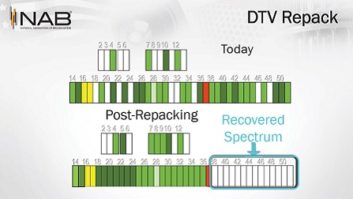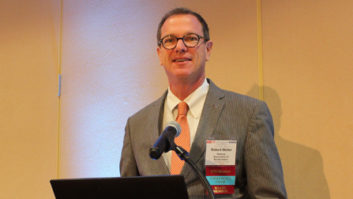Irony
One of the biggest ironies here is that the burden of program regulation would likely hit small broadcasters harder than the big guys.
Smaller operations can’t scale compliance costs like the bigger folks can, so they’re likely to suffer more — and possibly even cut back “local” programming. But smaller broadcasters may be among those most likely to be locally owned and, therefore, presumably more likely (at least in the FCC’s eyes) to be “responsive” to local needs.
How’s that for the law of unintended consequences?
Plus, even in the most recent heyday of program regulation, the commission routinely granted virtually all renewal applications whether or not their program showings fell well below the informal “processing guidelines” then in place.
Don’t take our word for it — go see what two commissioners (Cox and Johnson) said when they repeatedly dissented to such en masse grants after careful review of the applications convinced the commissioners that the renewal applicants had not necessarily served the public interest.
So it’s not like the FCC has historically cared whether or not the paperwork chores it imposes ultimately lead to “better” programming.
In view of that history, a sudden return to the days of yesteryear makes little or no sense (as dissenting Commissioner McDowell commendably seemed to observe).
One of the dirty little secrets of the “localism” question is that the FCC does not have to involve itself in that question at all. While the Act doesn’t preclude the FCC from imposing some “localism” obligation, the Act does not require the FCC to do so.
But despite that, the FCC seems preternaturally drawn to program regulation.
As we said to the FCC directly, in a set of rulemaking comments filed in the ongoing “localism” proceeding:
Commission concern about broadcast “localism” closely resembles the 17-year cicada in a number of respects. Both emerge after periods of dormancy lasting more than a decade, both generate considerable noise during their emergence, both tend to result in messes requiring clean-up activities well after each emergence has ended, and neither accomplishes much at all, other than to lay the groundwork for the next emergence.
Of course, like the cicada’s periodic appearance, the urge to publicly embrace “localism” may be an irresistible, genetically-engrained phenomenon.
But while a cicada, emerging from its long dormancy, presumably cannot reflect on the experience of the generations of cicadas which have gone before, the commission can do so. Team Cole’s Law sure hopes that the FCC takes a long and careful look at its own history before it tries to repeat it.












